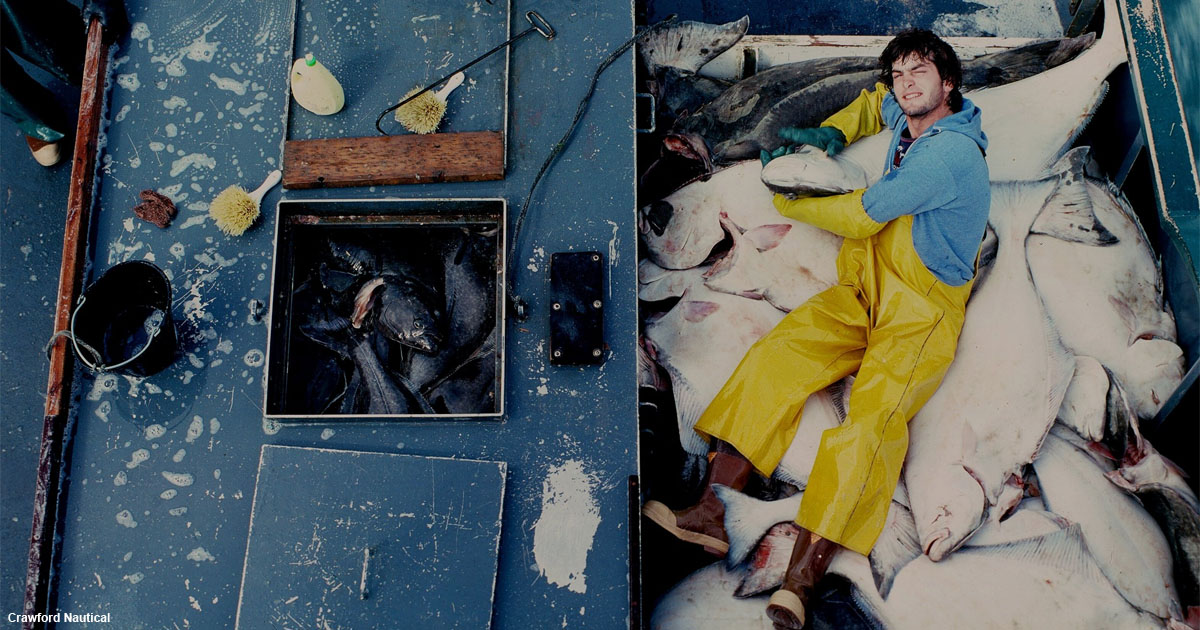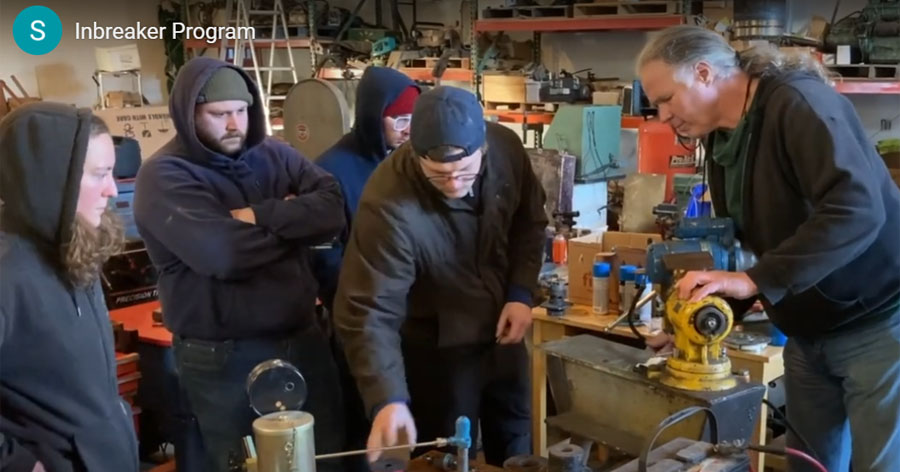W.S.L.C.
An apprenticeship to ‘Eat on the Wild Side’
How the DSFU and WSLC teamed up to create the nation’s first registered apprenticeship program for commercial fishing — in just six months.
SEATTLE (March 21, 2022) — It’s called “Eat on the Wild Side.”
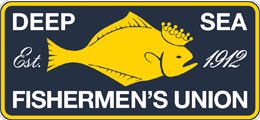 It started as an idea by leaders of the Deep Sea Fisherman’s Union (DSFU) to recruit, train and retain a skilled — and more diversified — workforce. In July 2021, they contacted the Workforce Development Department of the Washington State Labor Council (WSLC), AFL-CIO for help in setting up this new training program. And by December, they had created the nation’s first registered apprenticeship program for commercial fishing.
It started as an idea by leaders of the Deep Sea Fisherman’s Union (DSFU) to recruit, train and retain a skilled — and more diversified — workforce. In July 2021, they contacted the Workforce Development Department of the Washington State Labor Council (WSLC), AFL-CIO for help in setting up this new training program. And by December, they had created the nation’s first registered apprenticeship program for commercial fishing.
The program, also known as the DSFU Inbreaker Program, began accepting applications in January and almost immediately had more applicants that they had boats/employers to handle the demand. So today, Eat on the Wild Side’s first cohort of apprentices are getting the classroom education and technical on-the-job training they need to earn credentials and succeed in this industry.
Commercial fishing is a very demanding occupation. It’s hard work and it can be dangerous, especially if workers are not properly trained. And historically, that training has been inconsistent with different companies and different boats training new workers in different ways.
To establish their new apprenticeship program, DSFU Executive Director Jim Johnson said their union set up a motivated committee led by Ry Pengilly, a young fisherman from Kodiak, Alaska. Employer partners were immediately on board with the idea and WSLC President Larry Brown was “a big help” in connecting the DSFU with the WSLC’s Workforce Development Department.
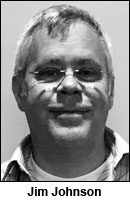 “They are subject matter experts,” Johnson said. “We didn’t know anything about apprenticeship and funding resources. We were just hugely impressed with the assistance they provided, the really good advice about navigating grant applications, getting us in contact with players. They are the cement in the wall, really holding this thing together.”
“They are subject matter experts,” Johnson said. “We didn’t know anything about apprenticeship and funding resources. We were just hugely impressed with the assistance they provided, the really good advice about navigating grant applications, getting us in contact with players. They are the cement in the wall, really holding this thing together.”
The WSLC team was similarly impressed.
“I’ve never heard of it happening so fast,” said Kairie Pierce, the WSLC’s Lead Workforce Development Director. “Credit goes to the DSFU and their committee that worked quickly to respond to every step of the process. It also helped to have Rachel (McAloon) — who knows apprenticeship inside and out — assisting them along the way.”
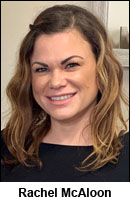 McAloon joined the WSLC’s Workforce Development team in 2019 after working as an Apprenticeship Consultant at the Washington State Department of Labor and Industries. In that role, she conducted employer outreach to expand registered apprenticeships. Now she’s putting that expertise to work for the WSLC’s affiliated unions, helping them grow their apprenticeship programs and create more training opportunities for family-wage careers throughout Washington.
McAloon joined the WSLC’s Workforce Development team in 2019 after working as an Apprenticeship Consultant at the Washington State Department of Labor and Industries. In that role, she conducted employer outreach to expand registered apprenticeships. Now she’s putting that expertise to work for the WSLC’s affiliated unions, helping them grow their apprenticeship programs and create more training opportunities for family-wage careers throughout Washington.
In this case, she worked with the DSFU to create a brand new program.
“Because they work on international waters, this program had to be federally approved by the U.S. Department of Labor. But we made sure we built it up to meet Washington state’s apprenticeship standards, which are higher,” McAloon said. “It was approved in December, started in January and they already have multiple apprentices on the boats in March. So that is definitely a win.”
Founded in 1912, the DSFU is one of the oldest unions in the country. Its members work on the boats of the Fishing Vessel Owners’ Association, a trade association of longline vessel operators. Given today’s nationwide shortage of workers in fishing industry, DSFU leaders decided that not only did they need an apprenticeship program to train more workers, they needed to broaden their outreach to people who may not have ever considered a career in the industry.
The WSLC Workforce Development team connected the DSFU with Kasi Perreira, the WSLC’s Director of Racial and Gender Justice, to help the union work on equity issues.
“We want to do what we can to bring in populations who haven’t been adequately represented in the maritime industry,” Johnson said. “We have always relied on the traditional communications network for fishermen. We want to do more than that and reach out to more communities so we can create a pipeline to this program. We want to eliminate any barriers.”
This new program’s Related Technical Instruction (RTI) component consists of courses that provide an apprentice Inbreaker with technical skills related to commercial fishing, like learning to set gear and get familiar with boats. The RTI curriculum gives apprentices the opportunity to develop skills in a wide array of subjects before they begin On-the-Job Training, where they work side-by-side with the existing crew who function as mentors and aid in their development.
“After completing the training, I felt like I had a complete idea and firm grasp of the concepts of commercial longlining and pot fishing,” said apprentice Brandon Kelpis. “I felt sure of myself and prepared when it came being the Inbreaker on my boat.”
The DSFU got Crawford Nautical, a maritime school that was going out of business, to essentially donate its school to the Eat on the Wild Side non-profit organization. So now, the program has access to all of the Crawford curriculum and materials for deck hands, engine room and wheelhouse.
And they are already looking to expand, Johnson said.
“We are in the process of designing an Able-Bodied Seaman apprenticeship program, which we hope to launch next year,” he said, adding that they are also working with Washington State Ferries to help create a pipeline for more trained workers, which the system desperately needs.
For more information about the “Eat on the Wild Side” apprenticeship program, visit the program’s website or email eatonthewildside@gmail.com or call the Program Administrator, Ry Pengilly at 907-539-7145.
For more information about creating or expanding an apprenticeship program in Washington state, contact Kairie Pierce at kpierce@wslc.org or 360-570-5167.
“The ultimate goal is for all WSLC affiliates to look at the work their members do and think about how that could become an apprenticeship,” Pierce said. “We stand ready to help that happen.”
 From initial entry to the workforce, to career transition, and when facing job loss, the WSLC’s Workforce Development Department seeks to ensure universal access to portable skills and a voice in career development, continuity for those navigating the workforce system, and an economy that works for both workers and businesses. Learn more here.
From initial entry to the workforce, to career transition, and when facing job loss, the WSLC’s Workforce Development Department seeks to ensure universal access to portable skills and a voice in career development, continuity for those navigating the workforce system, and an economy that works for both workers and businesses. Learn more here.

